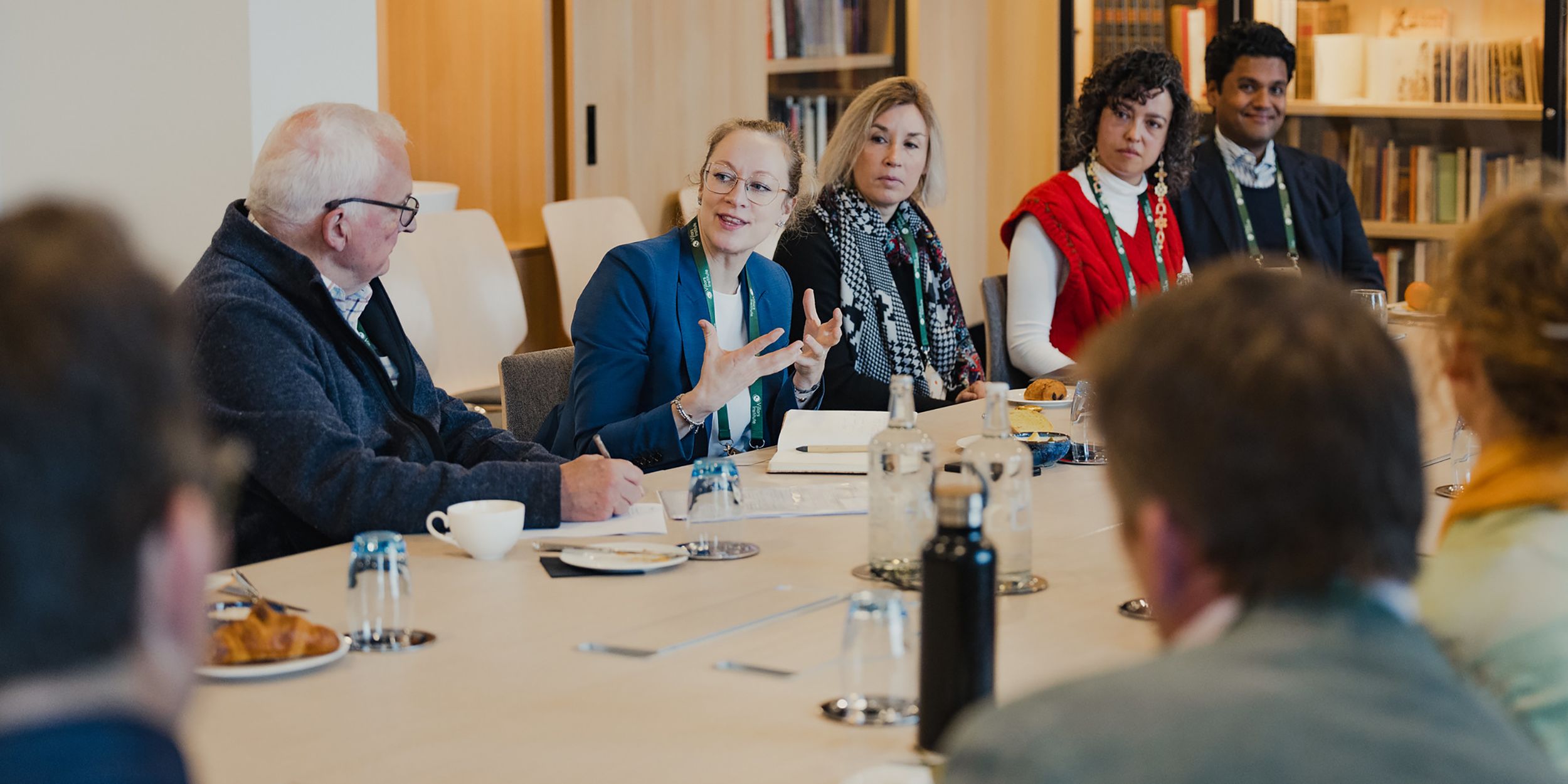The Ideas
The discussion explored the holistic pathway of the agrifood sector, from the share-holder farmers to consumers. Underpinning all conservations was the ethos to think with our hearts, minds and human ingenuity when addressing food insecurity.
We began by exploring the backbone of the agrifood industry: the share-holder farmers. Farming is the nexus between addressing food scarcity, through climate mitigation and adaptation. One of the experts was an innovator paving the way for farmers to transition from current practices to more sustainable, efficient and equitable ones. The expert demonstrated the importance of multifaceted solutions, that both enhance and benefit local farmers as well as strive towards a greener Agrifood sector. By presenting these win-win solutions to farmers, a ripple effect across communities can be put in motion stemming from ‘pilot farms’.
A key theme from the second expert was how consumers can be mobilized, ‘by injecting mindfulness and purpose into the single most common decision we make every day’ - what we eat. Their unique model and global platform which connects fragmented audiences, reinforced the importance of effective communication. A collective consensus was reached: data alone doesn't drive customers. Through promoting the synergy of healthy diets and sustainable choices, the expert demonstrated how to expand the planetary health diet to mainstream audiences.
The third expert helped to shift from bottom-up and grassroots initiatives to discussions on how to unlock capital and philanthropy to catalyze change. The expert brought an urban lens to the rich discourses and explored how national and international action can be inspired by driving change in cities. A city serves as the perfect microcosm of a system. Thus, investing in and fostering economies, that prioritize sustainable and affordable food, is imperative.
Uniting the three experts was a shared future-forward vision for a sustainable agrifood sector, whereby we can extend the longevity of our lives in parallel to that of the planet.
The Perspectives
An initial discussion on leveraging customer power and changing mindsets was particularly thought-provoking. One participant posed the question of how people can be motivated to adopt sustainable practices, given that humans are naturally creatures of habit. Many agreed on the power of narratives to connect culture to consumerism. The innate intersectionality between heritage, culture and food, provides endless opportunities to craft stories that give agency and instill habitual changes in communities. Innovators need to illustrate these clear links to drive lasting changes in culture.
Following on from this, many participants recognized an untapped potential specifically at the intersection between health and sustainability. They highlighted the benefits of adopting a planetary health diet to address the rising medical challenges associated with dietary-related illnesses, alongside vast environmental benefits. A novel idea was proposed: reallocating these ‘health savings,’ to mitigate and subsidize costs linked to transitioning to a more sustainable agrifood sector. A broader understanding was established that we must adapt policy frameworks on the ground, so sustainable companies come out on top. Through means of de-siloing policy, capital can be unlocked to drive transformational change. In tandem, pricing externalities is an imperative catalyst to drive change.
Another interesting point of discussion was surrounding strategic interventions to ‘green’ the transport sector throughout the supply chain. A key barrier to abating emissions was said to be the large outsourcing dependency. This observation prompted a unique insight from a participant who shared their experience working in agriculture based in UAE, a country that imports 85% of food consumed.
Many polarizing discussions ultimately distilled down to determining which point along the supply chain would be most impactful to target efforts. It is clear, however, that actionable change, from the farms to the consumers, can occur in parallel.



